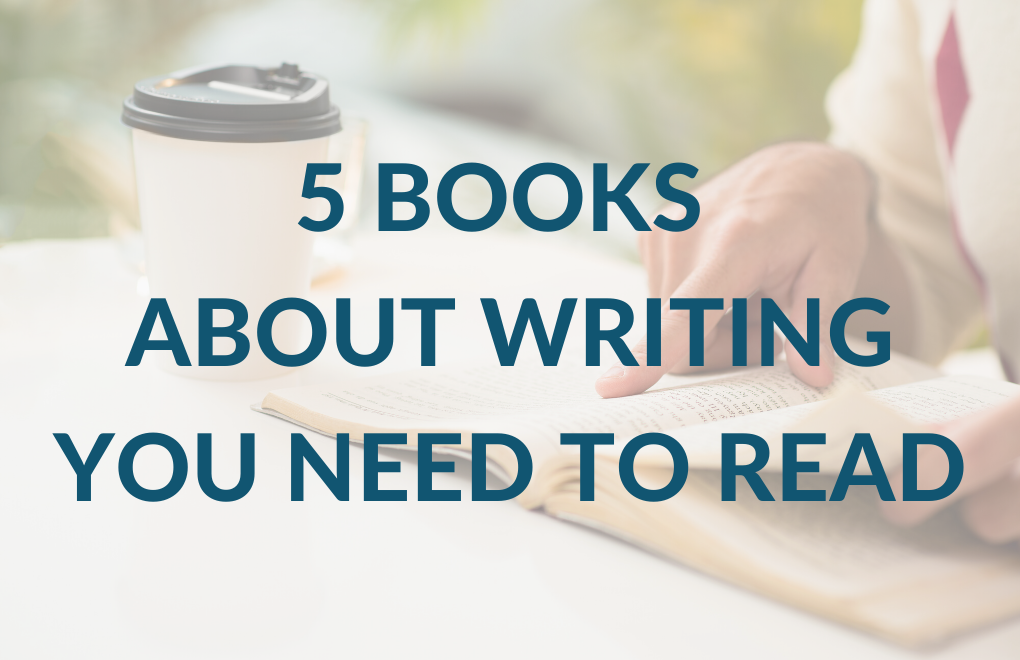These beautifully crafted books about writing improve your content creation skills and lift you up to the flow state.
Writing is not easy for everyone.
Still, content is one of the most powerful ways to establish your thought-leadership, connect with your audience and grow your business.
When the words don’t seem to flow, reinvigorate your creative state by reading these books about creativity, writing and storytelling. They always get me in the writing mood (and even if they don’t, they help me spend my procrastinating time more productively).
Dance with the fear of a bigger life
Elizabeth Gilbert: Big Magic. Creative Life Beyond Fear.
Elizabeth Gilbert’s book is about much more than only writing. It’s a classic for a creative lifestyle, encouraging the readers to live to their true purpose and follow their dreams.
Gilbert tackles any excuses that pop up in the reader’s mind and keep them from living up to their full potential with empathetic humor, skill and such precision that reveals the writer has probably lived through all those excuses herself, too.
“You’re afraid you have no talent.
You’re afraid you’ll be rejected or criticized or ridiculed or misunderstood or – worst of all – ignored.
You’re afraid there is no market for your creativity, and therefore no point in pursuing it. —
I’ll just wrap up my summary this way: SCARY, SCARY, SCARY.” – Elizabeth Gilbert
Learn from the master of non-fiction writing
William Zinsser: On Writing Well. The Classic Guide to Writing Non-Fiction.
William Zinsser is a master of non-fiction writing and his tips apply to magazine articles, personal memoirs and blog posts.
He gives advice on structure, descriptive writing as well as on different styles of writing. Whatever you’re working on, he’s sure to have a wise word or two to share.
You learn to write by writing. It’s a truism, but what makes it a truism is that it’s true. The only way to learn to write is to force yourself to produce a certain number of words on a regular basis.” – William Zinsser
Master the art of storytelling
Carmine Gallo: Storyteller’s Secret. From TED Speakers to Business Legends, Why Some Ideas Catch on and Others Don’t.
Storytelling is one of the most hyped about trends of content creation. At times it might be even a bit overused to describe all kinds of content techniques, but when used well, it’s a powerful way to create a message that resonates.
If you are serious about mastering the art, learn from the best. One of the best is Carmine Gallo, who illustrates with real-life examples the power of stories, with practical tips on crafting your own. Gallo lies as he preaches, which makes a non-fiction book a pleasurable, fiction-like reading experience.
“Great storytellers make us uncomfortable. They catch our attention by breaking an expected pattern.” – Carmine Gallo
Play with fiction-writing techniques
Anne Lamott: Bird by Bird. Some Instructions on Writing and Life.
Anne Lamott’s brilliant writing guide is actually about fiction-writing, but many of her exercises and tips apply to non-fiction, too. Especially useful is her “two-inch frame” exercise, which battles both procrastination and the difficulty to get started with a topic.
Lamott’s wry humor is also something very hard not to love, and while writing about writing, she manages to make a few very good observations on the nature of life in general.
“Perfectionism is based on the obsessive belief that if you run carefully enough, hitting each stepping-stone just right, you won’t have to die.” – Anne Lamott
Non-fiction that is impossible to put down
Lee Gutkind: You Can’t Make This Stuff Up. The Complete Guide to Writing Non-Fiction from Memoir to Literary Journalism and Everything in Between.
Lee Gutkind’s goal is very simple: teach his readers to write non-fiction that is as captivating and intriguing as fiction, without any compromises made to the facts.
His non-fiction writers’ bible can be read as a how-to book or just as a generally interesting essay on the nature and best practices of non-fiction writing. His exercises are skilfully crafted and lay out the process step by step so delicately that a beginning writer might end up writing their first essay without even realizing it.
“You don’t have to be objective or balanced in presenting your narrative, but you must be trustworthy and your facts must be right if you’re going to be a writer of creative nonfiction.” – Lee Gutkind
Now, stop reading and start creating your own content
I hope you enjoy these reading recommendations!
But use them wisely: reading shouldn’t distract you from getting your content in front of your audience and start transforming their lives.
If you’re struggling to get started, you can download 10 ideas that work on every channel and use those to plan content for the next two weeks in only ten minutes.







Recent Comments